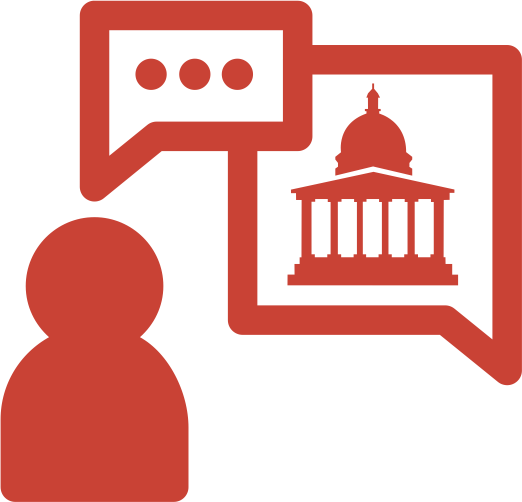It is essential to recognize the pivotal role that education plays in shaping individuals and societies alike. At Aditya Birla World Academy, an esteemed international school in Mumbai, we understand the profound impact that formal education has on the lives of our students and the broader community.
In an era characterized by rapid globalization and technological advancements, the importance of education has never been more pronounced.
In this blog post, we will explore the multifaceted significance of formal education, examining its role in shaping modern careers, addressing global issues, and fostering a culture of lifelong learning.
How Formal Education Shapes Modern Society
The importance of formal education cannot be overstated. Some ways in which formal education shapes modern society include:
Cultivating Critical Thinkers:
Formal education instills the ability to analyze, evaluate, and solve complex problems, fostering individuals capable of navigating the intricacies of modern society.
Promoting Social Cohesion:
Schools serve as melting pots where diverse cultures and backgrounds converge, fostering empathy, understanding, and tolerance among students, which are essential for building harmonious communities.
Driving Technological Advancement:
Formal education equips students with foundational knowledge in science, technology, engineering, and mathematics (STEM), empowering them to contribute to technological innovations that shape the future.
Fostering Global Citizenship:
Through exposure to global perspectives and issues, formal education encourages students to become informed global citizens who are aware of their responsibilities in a interconnected world.
Addressing Societal Challenges:
Education provides the tools and knowledge necessary to address pressing societal issues such as climate change, inequality, and healthcare disparities, fostering informed and proactive individuals who seek to enact positive change.
Empowering Economic Progress:
By equipping individuals with skills and expertise, formal education plays a pivotal role in driving economic growth, innovation, and entrepreneurship within communities and nations.
Preserving Cultural Heritage:
Formal education serves as a conduit for transmitting cultural heritage, traditions, and values from one generation to the next, ensuring the preservation of rich cultural identities amidst globalization.
The Crucial Need for Formal Education in a Dynamic World
Formal education serves as a cornerstone for individuals navigating the complexities of the 21st century. Here are some key points highlighting why formal education remains indispensable:
Skill Development:
Formal education equips individuals with essential skills such as critical thinking, communication, and problem-solving, which are vital for success in a dynamic and competitive global landscape.
Adaptability:
In a world marked by rapid technological advancements and shifting economic landscapes, formal education cultivates adaptability, enabling individuals to thrive amidst change and uncertainty.
Career Opportunities:
The skills and knowledge gained through formal education open doors to diverse career opportunities, empowering individuals to pursue their passions and contribute meaningfully to society.
Innovation and Progress:
Formal education fuels innovation and progress by nurturing creativity, curiosity, and a thirst for knowledge, driving advancements in various fields.
The Intersection of Formal Education and Global Issues
In the 21st century, formal education plays a pivotal role in addressing pressing global challenges and shaping the future of our planet.
Climate Change Awareness:
Formal education serves as a platform for raising awareness about climate change and its impact on the planet. Through science curriculum, environmental studies, and sustainability initiatives, students are equipped with the knowledge and tools to understand the urgency of addressing climate change and to advocate for sustainable practices.
Social Justice and Equity:
Education is a powerful tool for promoting social justice and equity. Formal education fosters inclusivity and diversity, providing opportunities for marginalized communities to access quality education and empowering individuals to challenge systemic injustices. By incorporating social justice issues into the curriculum, schools can cultivate empathy, tolerance, and a commitment to creating a more equitable society.
Global Health Challenges:
Formal education plays a critical role in addressing global health challenges, such as pandemics, infectious diseases, and public health disparities. By educating students about health literacy, preventive measures, and healthcare systems, schools contribute to building resilient communities capable of responding effectively to health crises.
Human Rights Education:
Formal education serves as a platform for promoting human rights education and empowering individuals to become advocates for justice and equality. By teaching about human rights principles, historical struggles, and contemporary issues, schools instill values of dignity, respect, and empathy, fostering a culture of human rights awareness and activism.
Peacebuilding and Conflict Resolution:
Education is instrumental in promoting peacebuilding and conflict resolution efforts globally. Through peace education programs, conflict resolution techniques, and intercultural exchanges, formal education fosters understanding, dialogue, and cooperation among diverse communities, laying the foundation for a more peaceful and harmonious world.
The Importance of Formal Education in Modern Careers
In today's rapidly evolving job market, formal education holds significant importance in shaping successful careers. Formal education serves as a cornerstone for helping individuals excel in diverse professional settings.
Foundational Knowledge:
Formal education provides individuals with foundational knowledge and skills essential for excelling in their chosen fields. Whether it's mathematics, science, humanities, or vocational training, the education received serves as a solid base upon which specialized expertise can be built.
Professional Development:
Formal education offers opportunities for professional development and specialization. Advanced degrees, certifications, and vocational training programs equip individuals with the specialized skills and expertise required to thrive in competitive industries.
Credentialing and Validation:
Employers often use formal education as a measure of competency and qualification. Degrees, diplomas, and certifications serve as tangible evidence of an individual's dedication, knowledge, and capabilities, enhancing their credibility in the job market.
Career Advancement:
Formal education opens doors to career advancement opportunities. Higher levels of education are often associated with increased earning potential, leadership roles, and greater job stability, providing individuals with pathways to professional growth and success.
Adaptability and Lifelong Learning:
In a rapidly changing workplace landscape, formal education fosters adaptability and a commitment to lifelong learning. The skills acquired through education enable individuals to navigate technological advancements, industry trends, and evolving job requirements, ensuring relevance and competitiveness throughout their careers.
Conclusion
Formal education serves as a foundational catalyst for personal growth, societal development, and global progress. From shaping modern careers to addressing pressing global issues, formal education plays a pivotal role in preparing individuals to thrive in an ever-changing world.
It empowers individuals to become lifelong learners and active contributors to their communities. The importance of formal education remains steadfast, guiding us towards a more prosperous future for generations to come.

 Online Admission
Online Admission Scholarship Programme
Scholarship Programme University Counselling
University Counselling Leadership
Leadership Voices at ABWA
Voices at ABWA